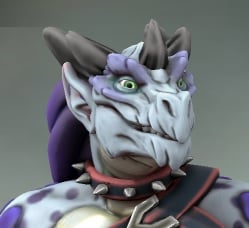I can relate… If it is worth doing, it must be done 100% right, first try, zero margin for error, no rehearsals, no practise round.
Like rocket science!
(Except I know that’s not how rocket science is done, either, but somehow that thought refuses to sink in)


Shit, I had such a similar experience… It’s so depressing how over the years (it was almost 30 for me, and from op I assume still now) things haven’t changed for us much…
I’m 53 years old. I have three kids, two of them are officially diagnosed on the ASD spectrum, have been for some time. And I have just started to realize in the past year that I’m on the spectrum, too (though not diagnosed, and I’m not clear on how useful it would be for me to go through that process).
So kind of all the time, I’m remembering things from my past, at all ages, and going, “Ohhhh …”
Been diagnosed for about 10 years at this point and still doing that "ohhhh" constantly (as my op reply demonstrates lol)
It really is incredible to realise how much of ourselves we have to suppress or ignore or change just to fit in with NT expectations and rules.
Oh, and just to touch on the diagnosis part, it’s definitely a hassle, and it didn’t get me much autism specific support per se (mostly because there isn’t any available), but just knowing has made a huge difference in my understanding of myself (back to the ohhh realisations and understanding just how much about me isn’t “wrong” juts “autistic” which is perfectly normal for me), and it does help to be able to tell support and other health workers, some might not have a clue what it means, but some will be able to understand and support much better.
Also self diagnosis is completely valid despite what some might say, it’s hard to access care, and even if you do, it’s hard to get a diagnosis (I had a real struggle, as do many, especially women). If you feel that the diagnosis applies to you, and especially being a parent to autistic kids you’d know a lot about it, I wouldn’t hesitate to claim it.
When the goal is to have a better understanding of myself, if looking at myself through the lens of autism is useful, even without a clinical diagnosis, I have no problem doing that. Between that, and Zoloft, and simply being older, I’m a lot more “okayer” with myself than I was even two or three years ago.
The “older” part is important. While I still wish I had the kind of interpersonal relationships that I see other people having, I’ve come to terms with the fact that we don’t always get what we wish for, that being somewhat isolated and internalized is my lot. I can either do something about it, or be okay with it, or some combination of the two - but being disappointed in it (and in myself by extension) isn’t doing anyone any good. Not me, not my family, not the tiny handful of friends I do have.
Is there a difference between embracing who you are and giving up on who you want to be? Does it matter if there is?
I think there isn’t a difference, I think leaving the ideas that society (an ableist society, at that) has imprinted on us from birth of who we should be, and instead embracing who we are are two sides of a really healthy coin.
Probably the most important lesson I took from my diagnosis is that my boundaries are legitimate and valid, and that it is those who disrespect them that are wrong, not me for setting them. Some of those boundaries mean I exclude myself from situations I know will be overwhelming, or I exclude people from my life who refuse to communicate with me in a way that I can deal with.
I agree that a lot of this comes with age, but I also think that realising that we simply don’t process the world around us the same way NT do and that most of the world around us caters to them, can go a long way in to reassuring yourself that you aren’t the “problem”, and that you taking care of your own needs is fair enough (if not radical), whatever that looks like.
Same, and for those of us that were able to learn to cope it really seems like most of the symptoms are just being direct and clear instead of following social norms just because everyone else was.
Like I understand social cues, but also think many of them are stupid and confusing and see everyone else misunderstand them constantly but think they are great at it. Apparently just faking it is the norm, and when I see someone who is autistic struggle with vague ‘non-verbal cues’ I really feel for them because of how often I am misread. Like I’m crossing my arms because my shoulders hurt or I am chilly, not because I am mad.